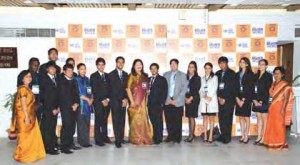 Several National & International events like the Indian Model United Nations (INMUN), International Children’s Festival of Performing Arts (ICFPA) and IAFA (Indian Ad Film Awards) amongst many others are regularly organized at Ryan to provide opportunities for leadership and all round development
Several National & International events like the Indian Model United Nations (INMUN), International Children’s Festival of Performing Arts (ICFPA) and IAFA (Indian Ad Film Awards) amongst many others are regularly organized at Ryan to provide opportunities for leadership and all round development
Indian Model United Nations
Fast facts
Inception: 2001
Participants: Over 800 student delegates from about 120 schools from India, Nepal, Sri Lanka, and Indonesia
The level of debate and hard work,exhibited by other student delegates, is very high. The entire experience is highly encouraging and memorable Sampurna Basnet, Ritambhara Parcyuli & Garima Golcha (Students), Rato Bangala School, Nepal, Kathmandu
The Concept of Indian Model United Nations was initiated by the Founding Chairman, Dr. Augustine F. Pinto and Managing Director, Madam Grace Pinto, Ryan International Group of Institutions through their sustained efforts and commitment towards rich quality education. Their vision has provided a platform to the young citizens to debate on various issues that plague the world.
The MUN concept is a student run simulation of the United Nations. Students delegates representing various UN member nations address specific issues of importance in the global arena. Through debate and negotiations, student delegates attempt to resolve regional and international problems. They are expected to do this in a conciliatory manner to the fullest of their nation’s interest. They learn to embrace the spirit of the UN charter. MUN conferences provide students with the opportunity of playing the role of diplomats involved in decision making and conflict resolution at the UN. Students not only learn about the UN system, but also find out about economic, social and environmental issues pertinent in today’s world. Students learn to resolve these problems through negotiations and compromise. In order to do this they are expected to develop skills of independent research, oration, resolution writing and collaboration. As students take on the role of inter- national diplomats, they have to put their own views on one side and embrace the foreign policy of the nation which has been assigned to them. It gives the students an opportunity to develop critical thinking and to know the current state of the world, and also of future possibilities and solutions. Students also learn about the conduct of foreign meetings and the use of parliamentary procedure.
The Ryan International Group also encourages its students to attend such conferences organized by other countries. Ryan Students have been attending Colombo Model United Nations, Sri Lanka, Model United Nations of the Far West San Francisco, USA, Iberian Model United Nations, Portugal & National Model United Nations, New York, USA. Students have attended MUN sessions at New International School of Thailand, Bangkok, Garden International School, Malaysia and The International School of The Hague, Holland.
International Children’s Festival of Performing Arts
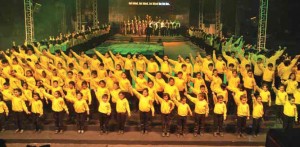 Inception: 2000
Inception: 2000
Participating Countries: Australia, Bangladesh, Canada, Croatia, Denmark, Estonia, Germany, India, Israel, Iran, Malaysia, Nepal, Netherlands, Nigeria, Pakistan, Poland, Romania, Russia, Singapore, Switzerland, South Africa, Slovenia, Sri Lanka, Turkey, Thailand, United Kingdom, West Indies, Zimbabwe, Zambia, Venezuela so forth…
Ryan believes that performing arts is a sensitive, creative and liberal medium of expression for children and it helps to establish a bond of friendship and cooperation among nations. Politics and religion divide people, but art and culture unite them – the truth of the statement is brought home through varied theatrical performances. Irrespective of language, performing arts has a universal understanding through body language and facial expressions through which actors express various human emotions like indignation, ecstasy, envy and excitement. The main aim of International Children’s Festival of Performing Arts (ICFPA) is to create an international platform for young people to perform, unite, exchange ideas and explore the medium of dance, drama, puppetry and various other genres of performing Arts. The focus is interaction, improvisation, play and discussion among the participants. The festival spread its roots far and wide, with more Asian, African and European countries joining us year after year. In the year 2004, there were more than 280 performances and 4000 children participating in the festival. Over the years, ICFPA has traveled through the path of popularity to the interiors of India. There have been smaller festivals in Nagpur, Nasik, Raipur, Aurangabad, Jaipur, Ludhiana, Surat Amritsar and Chandigarh.

“I would like to congratulate the organizers for creating, through this festival, an opportunity of facilitating interactions between cultures and young children from various countries” Mrs. Sonia Gandhi Congress President and Chairperson UPA
“Festivals like 6th International Youth Folk Festival are a good example of how to live in this world with peace and harmony. It helps to promote peace and agreement.” Rustam Minnikhanov (President of the Republic of Tatarstan)
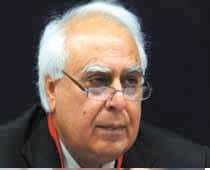
“This unique endeavor, pioneered by the Ryan Foundation and Indian Council of Cultural Relations, is helping to create lasting bonds of friendship and cooperation amongst children hailing from different cultures and linguistic regions.”
Kapil Sibal Minister of HRD and Information Technology

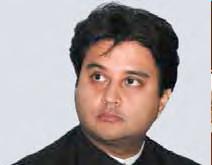
“Such events provide unique opportunities for our children to discover new things and explore wider avenues.”
Jyotiraditya M Scindia
MoS, Commerce & Industry

“This event by the Ryan International Group of Institutions provides a unique opportunity to our children by facilitating teraction with children from various nations.”
Sheila Dixit
Govt. Of National Capital Territory Of Delhi


 “I am proud that Ryan Foundation
“I am proud that Ryan Foundation
invited again a group of artists from Romania and I thank the organizers for this honor.” Valerica Epure Ambassador of Romania to India
Objective of the Festival
International Festival of Performing Arts is one of the biggest opportunities in India for the children of the world to unite and perform. The motto of the festival – Lets get the young hearts together to tie the knot of camaraderie, unity and tranquility through dance, drama and workshops.
• To bring forward performances by children which broaden the horizons of understanding of different cultures.
• Giving an opportunity to children from the backward class to view and be a part of the festival.
• Harmonizing strained relations between countries through young performers.
• To educate, entertain and bring awareness of issues that concern the world today.
• To keep creative experience alive.
• To showcase a broad range and variety of performances to children.
• To Stress upon the importance of dance, drama and music in upbringing of children.
• To promote the image of India as a country, rich in culture as well as a nation, open and eager to learn about the traditions and arts of other countries.
In the years to come, Ryan looks forward to hosting many more festivals with the objective of making this world a more
creative place to live in.
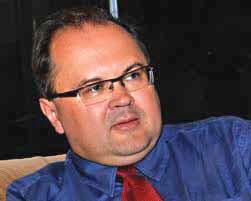 “The idea of getting together children from all over the world on to one single platform is a feat in itself and I wish to congratulate your esteemed institution for being able to achieve it for numerous years now.”
“The idea of getting together children from all over the world on to one single platform is a feat in itself and I wish to congratulate your esteemed institution for being able to achieve it for numerous years now.”
Prof. Piotr Klodkowski
Ambassador of Poland to India
 International Folk Dance Festival was held in Tatarstan for the 6th time. The participants had an opportunity to demonstrate the culture of its people, enjoy creative communication and plunge into the atmosphere of understanding. The concert performance was held in the Tatar State Philharmonic Society. Participants came from different countries including Argentina, Columbia, south Korea, Malaysia, Canada, Poland, Russia, Latvia, Taiwan, Croatia, Mexico,Netherlands and Turkey.
International Folk Dance Festival was held in Tatarstan for the 6th time. The participants had an opportunity to demonstrate the culture of its people, enjoy creative communication and plunge into the atmosphere of understanding. The concert performance was held in the Tatar State Philharmonic Society. Participants came from different countries including Argentina, Columbia, south Korea, Malaysia, Canada, Poland, Russia, Latvia, Taiwan, Croatia, Mexico,Netherlands and Turkey.
Ryanites posing with the organizers at the Handicraft Fair at Buinsk City, Tatarstan
Ryanites have also participated in various festivals all around the World. Details:
Year 2002
• 5th FEITAT in Tangler Morocco, January 2002
Year 2003
• Visha School of Dance, Colombo, Sri Lanka, March 2003
• BALLETSCHULE Indian Bavarian Cultural Exchange Munich, Germany, November 2003
Year 2004
• Maison des jeunes et de la Cultural Festival, Monistrol Sur Loire, France, June 2004
• Asia – Pacific Festival of Children’s Theatre in Toyama, Japan 2004
• HUM Indo-Pak Friendship Bond, Pakistan, May 2004
Year 2005
• 45th International Children’s Festival, Croatia, June 2005
• 20th International Children’s Theatre Festival Herbre, Switzerland, June 2005
• Performance at TPZ Theatrepadogogisches Zentrum der Emslanddischen
• Landschaft e.V, Germany, June 2005
• World Festival of Performing Arts 2005, Pakistan, November 2005
Year 2006
• 9th World Festival of Children’s Theatre, Lingen, Germany, July 2006
• Performance at Indian Embassy, Berlin, Germany, July 2006
• Performance at Indo – Polish Cultural Committee, Krakow and Myslenice, Poland, July 2006
• La-Luna Youth Arts Festival, Australia, December 2006
Year 2008
• 10th World Festival of Children’s Theatre, Moscow
• The World Festival of Children’s Performing Arts, Toyama
Year 2009
• International Culture Art and Performance Festival, Istanbul , Turkey
Year 2010
• Performed in Voices for a Better World, the first performance of the World Children’s Theatre Ensemble on September 26, 2010 at Royal Albert Hall in London.
ICEPLEX AD FILM AWARDS
 Madam Grace Pinto, Managing Director of Ryan International Group of Institutions and Chief Guest Boney Kapoor at Iceplex Ad Film Awards felicitating Youngest Indian to scale Mt. Everest Arjun Vajpai
Madam Grace Pinto, Managing Director of Ryan International Group of Institutions and Chief Guest Boney Kapoor at Iceplex Ad Film Awards felicitating Youngest Indian to scale Mt. Everest Arjun Vajpai
The concept of Education Through Lens has been concretized to develop Media and Film making skills in young Ryanites. In view of empowering the young “Iceplex” a media initiative was launched. A full-fledged team of media and social broadcasters have taken on the responsibility of mentoring the students to create India’s youngest breed of technicians, anchors, camera persons and producers. Iceplex came out with this Word’s First Online Ad Film Contest: Iceplex Ad Film Awards (IAFA). The Group continues to organize the World’s First Online Ad Film contest for the age group 11 to 21 years in the form of Iceplex Ad Film Awards or IAFA. Through IAFA students showcase their ideas, thoughts, views and imagina-tions in a very special way by making an Ad film of 60 seconds and sending it to Iceplex in a video format. The IAFA jury comprising of eminent personalities from the industry judge the Ad Films and declare the winners with the support of the data collected online. The Brand Ambassador for IAFA is Mr. Johny Lever. WWW. iceplex.tv portal has been receiving overwhelming response from students and their parents from all over. Iceplex has become a grand success with students broadcasting their ideas on Television through “Young Jourknows” & “BBN – Beyound Breaking News” programmes.
The 4th IAFA award will have three categories: Environment; Safety; and Health & Beauty

YJ Kriti Saini & Zinay Patel from RIS Faridabad & RIS Bardoli during BBN Training at Mumbai
“Ryan is different because of its curriculum, its activities and guest lecturers who come to our schools and talk to us”
Divya Lalchandani, Student, Ryan International School (Chembur, Mumbai) ICSE








 Inception: 2000
Inception: 2000






 “I am proud that Ryan Foundation
“I am proud that Ryan Foundation “The idea of getting together children from all over the world on to one single platform is a feat in itself and I wish to congratulate your esteemed institution for being able to achieve it for numerous years now.”
“The idea of getting together children from all over the world on to one single platform is a feat in itself and I wish to congratulate your esteemed institution for being able to achieve it for numerous years now.” International Folk Dance Festival was held in Tatarstan for the 6th time. The participants had an opportunity to demonstrate the culture of its people, enjoy creative communication and plunge into the atmosphere of understanding. The concert performance was held in the Tatar State Philharmonic Society. Participants came from different countries including Argentina, Columbia, south Korea, Malaysia, Canada, Poland, Russia, Latvia, Taiwan, Croatia, Mexico,Netherlands and Turkey.
International Folk Dance Festival was held in Tatarstan for the 6th time. The participants had an opportunity to demonstrate the culture of its people, enjoy creative communication and plunge into the atmosphere of understanding. The concert performance was held in the Tatar State Philharmonic Society. Participants came from different countries including Argentina, Columbia, south Korea, Malaysia, Canada, Poland, Russia, Latvia, Taiwan, Croatia, Mexico,Netherlands and Turkey.

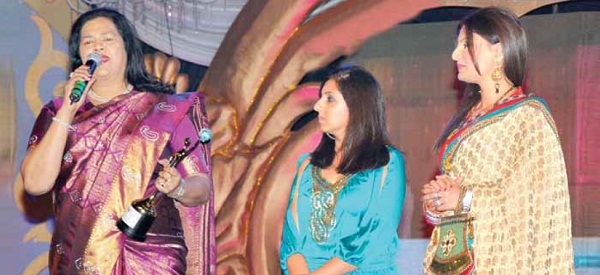
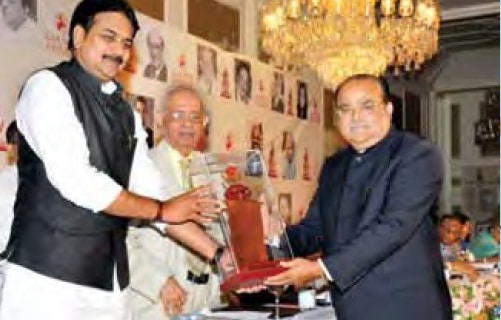

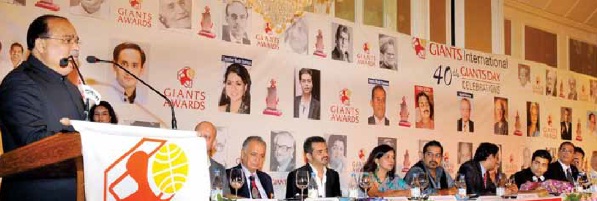
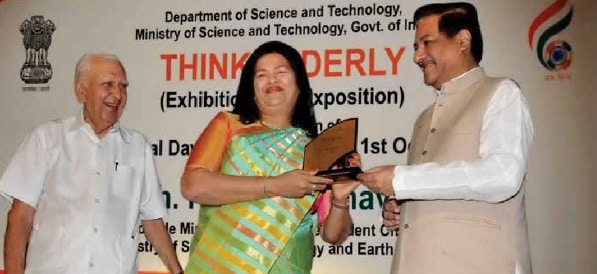


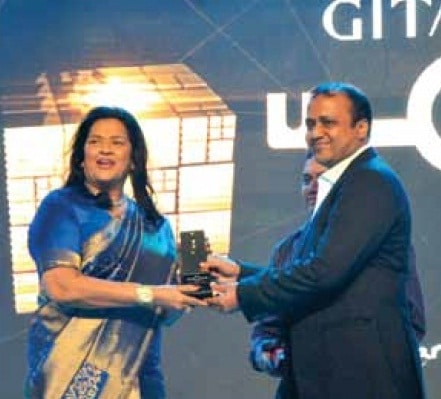
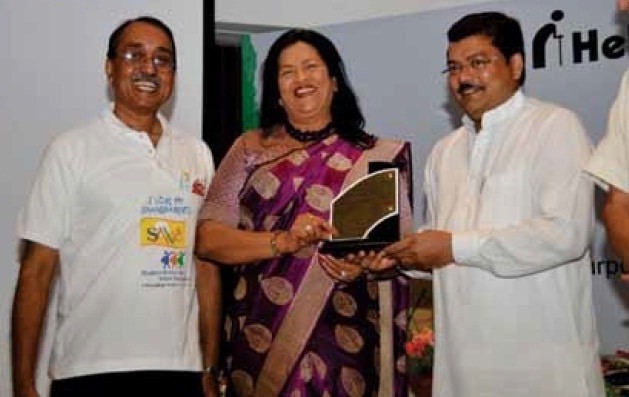

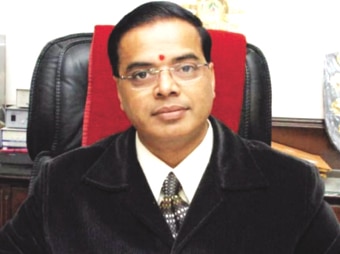
 Challenges being addressed by these technologies over the next few years:
Challenges being addressed by these technologies over the next few years: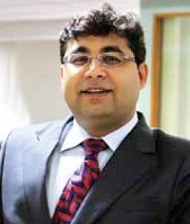 Beas Dev Ralhan
Beas Dev Ralhan Rajendra S Pawar
Rajendra S Pawar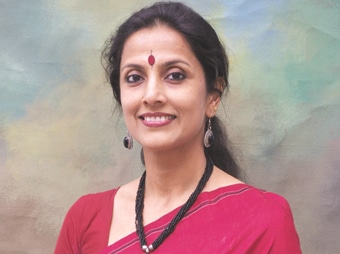
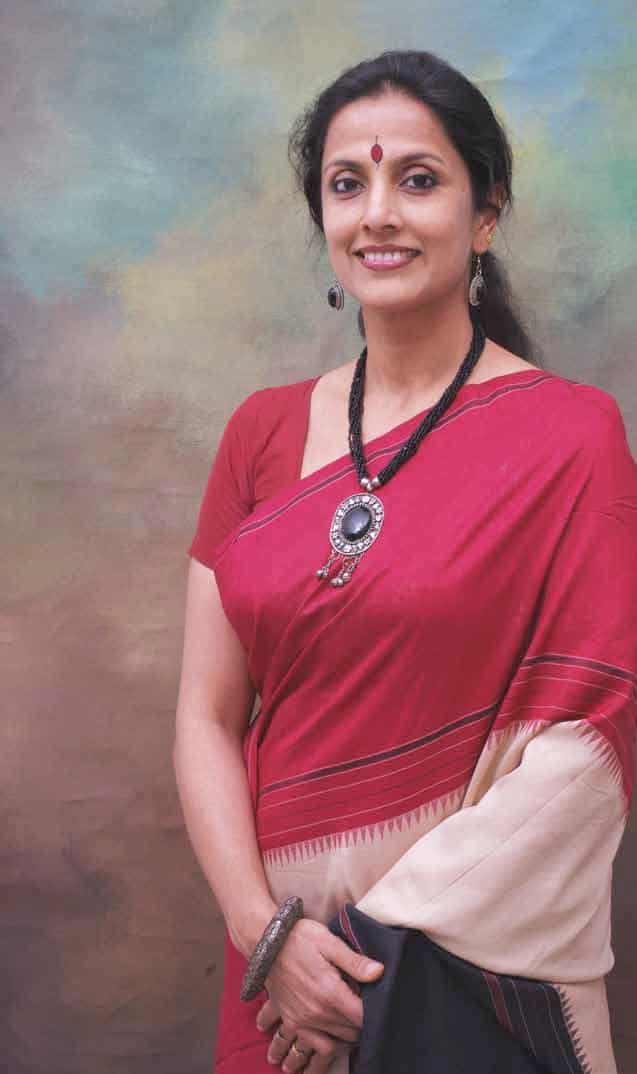 Shanthi Menon
Shanthi Menon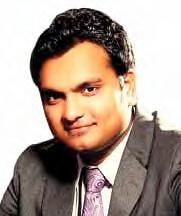 Rupesh Kumar Shah
Rupesh Kumar Shah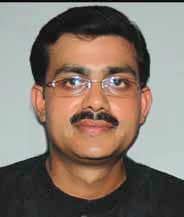 Santosh Ranjan
Santosh Ranjan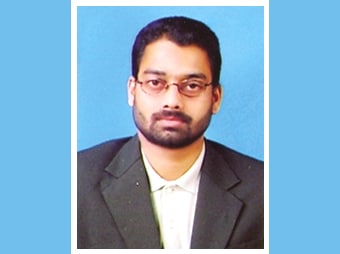
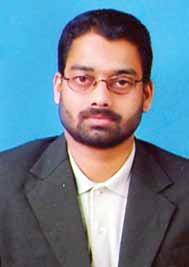 “Our School began its journey with the vision of creating a social culture where every child is educated with a concrete set of values for intellectual, scientific and spiritual development of our nation,” says
“Our School began its journey with the vision of creating a social culture where every child is educated with a concrete set of values for intellectual, scientific and spiritual development of our nation,” says 











